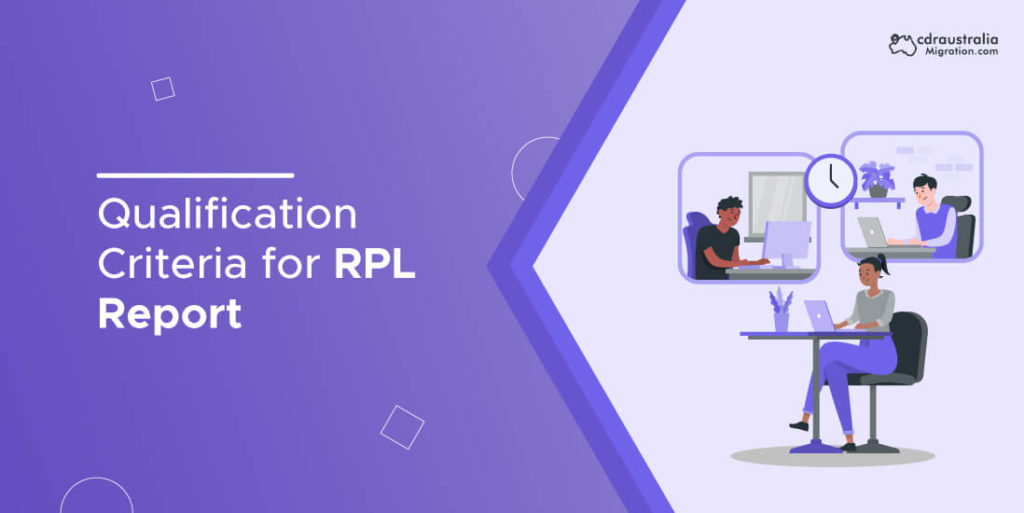The ACS Skill Assessment is a necessary element for applicants seeking an Australian Skilled Migration visa. The ACS skill assessment has a variety of qualification categories as well as eligibility requirements. The experience of the applicant should be properly aligned with the qualification obtained. The applicant’s dream is to settle in Australia and find a permanent job.
The Australian Computer Society will evaluate applicants having an ICT background (ACS). This official body will be in charge of receiving your skill assessment. A Recognition of Prior Learning (RPL) report is required if you lack an ICT qualification. A RPL report is required to determine whether the applicant’s skills are appropriate for the existing need for expertise.
The RPL report demonstrates the applicant’s qualifications and experience, which are required for migration to Australia. The RPL report to ACS is used to assess the abilities of applicants who are not ICT-related. Let’s pretend you’re an ICT expert with years of expertise. In that instance, you’ll need to provide an ACS RPL report to show that your education and experience meet the ACS’s criteria for eligible migration to Australia. You will also have the opportunity to exhibit your abilities and expertise if you do not have any ICT experience or a degree
For immigrants who have applied for eligible immigration to Australia but do not have the same degree as Australian universities, the RPL report is essential. For the ACS to authorize eligible immigration to Australia, the ACS RPL report must be submitted in the correct format. Your application will be rejected if you do not fill out the application correctly and do not meet the RPL report requirements. Furthermore, if you submit a plagiarized copy, the ACS can restrict you from reapplying for a year, which would cost you a lot of time and money.
Accredited Australian ICT qualifications | Qualification Criteria for ACS RPL Report
The ICT Major Criteria will be met by applicants who have an Australian degree that has been accredited by the ACS association. This, however, does not guarantee that the qualification will be evaluated in view of the ANZSCO occupation.
Assessment of ICT Content in Tertiary Qualifications
This group’s qualifications are considered as having either an ICT Major or an ICT Minor in computers. If the ICT content is less than a minor, it is considered a Non-ICT qualification.
1. ICT Major Criteria
Bachelor’s Degree Level
If an applicant has three years of bachelor’s degree, they will be deemed to have a major in computers. As long as at least 33% of the academic qualifications are in the field of information and communication technology. If your qualification is more than three years, it will be considered equivalent to a three-year AQF Level 7 award, such as a Bachelor’s degree.
Diploma, Advanced Diploma, or Associate Degree Level
If at least 50% of the qualification is in ICT, a certificate, intermediate diploma, or associate degree with a major in computing is regarded to have a major in computing. The longer-duration qualification is considered to be equivalent to AQF level 5 or 6 certificates.
Post Graduate Degree Level
If at least 50% of the qualification is ICT, a postgraduate degree that does not require a Bachelor with an ICT Major for admission is termed a computing major. Longer-term qualifications are evaluated against an AQF Level 8 or higher certificate. An Australian Postgraduate degree must have at least 67 percent ICT content, even if it only has 12 topics.
- Australian postgraduate qualifications require a minimum of three semesters or at least one and a half years of full-time study.
- Two semesters or one year of full-time similar ICT material is required.
- There must be a minimum of twelve units or subjects.
A postgraduate qualification that needs a Bachelor’s degree with a major in information technology for admission must have at least 33% ICT content, all of which must be at the postgraduate level.
2. ICT Minor Criteria
A bachelor’s degree can be designated a minor in computing if the ICT content meets at least two-thirds of the major requirements.
Inadequate ICT content
Non-ICT qualifications are those that do not meet the minimum ICT requirements.
Criteria for closely associated ICT material
The education certificate must contain at least 65 percent ICT content relevant to the claimed profession in order to meet the eligibility criteria.
Academic Record Statement
A list of courses completed, as well as the grade points received, should be included in your undergraduate record. The use of web reports and result slips is banned. Candidates should have a legend or key outlining the grading system on hand if necessary to help explain details.
Qualification completed, graduation certificate not yet been issued.
An official statement detailing the date of course completion must be provided if applicants have completed their qualifications but have not yet received their certificates.
Abstract for a Thesis or Research Project
If the certification requires a thesis or research report, a synopsis of the thesis or research report is required. The supervisor’s name and the institution’s name should both be in the abstract. The thesis’s published title must be utilized. On the front page of the abstract, indicate the number (%) and type of ICT material related to the specified ANZSCO.
Prerequisites as per Region
1. Prerequisites as per Region
If the candidate is from a Bologna Agreement signatory country, a diploma substitute must be presented.
2. People’s Republic of China (PRC)
If the applicant is from the People’s Republic of China (PRC), the academic degree regulations of the PRC must be followed while submitting the graduation diploma and award certificate.
3. Pakistan
If the applicant is from Pakistan, the HEC must give an attested copy of the award certificate as well as a full academic transcript (Higher Education Commission Pakistan).
4. The Philippines
Proof of passing the Professional Regulation Commission’s Licensure Examinations if applicable should be required if the applicant is from the Philippines.



